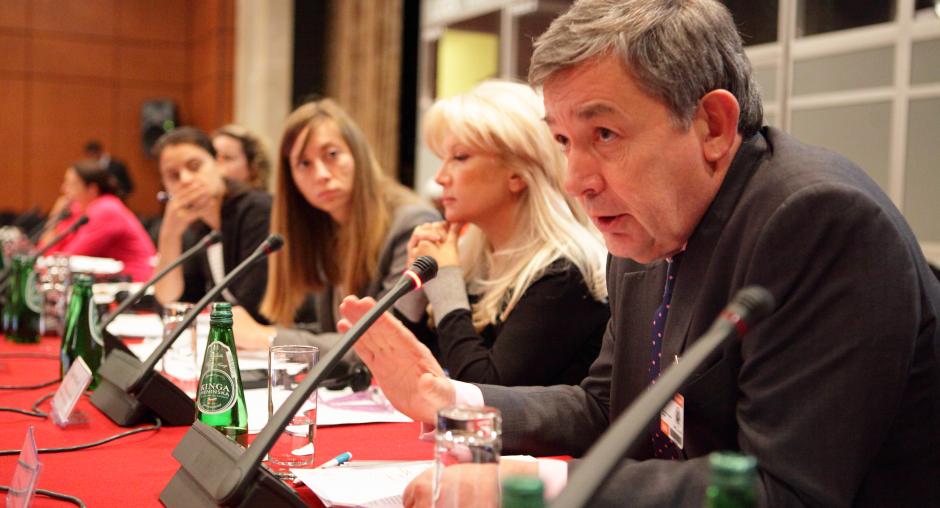Addressing gender-based discrimination in police forces through effective oversight mechanisms discussed at OSCE/ODIHR meeting in Warsaw

While law-enforcement institutions in the OSCE region are increasingly recognizing the benefits women bring to police in serving communities, more needs to be done to address gender-based discrimination within police forces, said participants of the OSCE Human Dimension Implementation Meeting in Warsaw on 24 September 2013.
Representatives from governments, international organizations and civil society noted that OSCE participating States now better understand the need to recruit more women law enforcement officers and help them to advance in their careers. They noted, however, that too often women police officers face discrimination in pay and promotion, do not receive the job related benefits to which they are entitled and suffer from the lack of effective policies and procedures to protect them against sexual harassment or assault on the job.
“Having women on the force helps police recognize and better address the needs of women, for instance, when they are the victims of domestic violence,” said Colonel Nelli Duryan Head of the Department for the Protection of Juveniles’ Rights and Fighting Domestic Violence at the Main Criminal Investigation Department of the Yerevan Police, Armenia. “But to be effective in their duties, women police officers themselves must also feel safe on the job and not face discrimination.”
“To address gender-based inequality, law enforcement agencies should not only strive to increase the number of women serving as police officers but also to properly address their concerns on an equal par with men,” said Andreea Vesa, Human Rights Officer at the OSCE Office for Democratic Institutions and Human Rights (ODIHR). “Employing oversight mechanisms, such as internal affairs units or independent external commissions, can help address the grievances of women police officers.”
ODIHR, in co-operation with the OSCE Gender Section, and with participation from the Geneva Centre for the Democratic Control of Armed Forces organized this event on the sidelines of the meeting in Warsaw. In 2014, the three entities will publish a joint series of resources that analyze oversight mechanisms for the security sector from a gender perspective.
